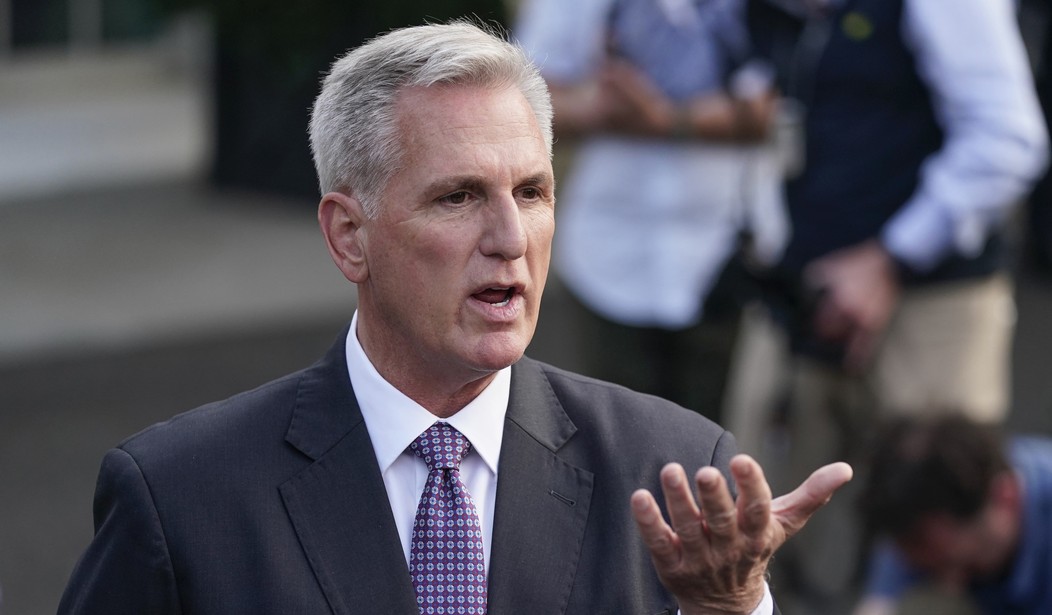In 1992, James Carville, a strategist for Bill Clinton’s presidential campaign, coined the term, “It’s the economy, stupid,” referring to the fact that the main issue in the 1992 campaign would be the state of the U.S. economy, which was mired in a deep recession. Carville was correct in his assessment, as Clinton rode the prevailing economic anxiety to victory over the incumbent, President George H.W. Bush.
Eventually, President Clinton identified the root cause of the ailing economy: overspending by the federal government. By the late 1990s, Clinton and the Republican-controlled Congress passed a balanced budget, marking the first time the federal government had run an annual surplus in more than three decades.
As Clinton declared in his 1996 State of the Union Address, “the era of big government is over.”
Unfortunately, the balanced budget was short-lived. By 2002, the federal government was back in the red, as the military response to September 11 and President George W. Bush’s No Child Left Behind education program resulted in a $158 billion deficit.
Since 2002, the federal government has spent more than it takes in every single year. Moreover, the size of the annual deficit has absolutely exploded in recent years, making 2002’s $158 billion shortfall look miniscule in comparison.
For example, in 2009, during the height of the Great Recession, the federal government’s deficit clocked in at $1.4 trillion. Eleven years later, it ballooned to $3.1 trillion, as Congress haphazardly passed a series of emergency spending bills in response to the pandemic. In the years since, the annual deficit has exceeded $1 trillion on an annual basis. And, as the Congressional Budget Office forecasts, we are likely to see $2 trillion deficits every year over the next decade.
Recommended
From 1990 to 1999, the national debt increased by a total of $2.4 trillion. From 2000 to 2009, it increased by $6.3 trillion. From 20010 to 2020, it increased by $12.2 trillion. And, over the past three years, it has increased by $6.1 trillion more. It goes without saying that this trend is unsustainable and unless it is reversed soon, will result in a debt crisis and economic pain not experienced since the depths of the Great Depression.
However, before the 2024 campaign kicks off in earnest, Congress has an opportunity to address the federal government’s spending problem as it faces an October 1 deadline to pass 12 appropriations bills that will fund the federal government for the next year.
Congress, and the Republican-led House of Representatives in particular, controls the nation’s purse strings. With this being the case, it is imperative that the GOP play hardball concerning the looming budget showdown.
First, Speaker Kevin McCarthy (R-CA) ought to insist that “regular order” be reimplemented into the budget process. This would force Congress to debate each of the 12 appropriations bills on their individual merits and would prevent Congress from passing another giant “omnibus” spending bill at the last second with little scrutiny and filled with earmarks.
Second, Congress should abandon “incremental” budgeting and replace it with “zero-based” budgeting. One of the reasons that domestic spending has increased substantially in recent years is because every single agency and department within the federal leviathan constantly increases, never decreases, their budgets. If zero-based budgeting were the law of the land, all of these agencies and departments would be forced to defend every penny they spend. And, as we all know, there is an immense amount of waste and reckless spending that could be lopped off the top if the vast bureaucracy actually decreased in size and scope.
Third, Congress should pass a Balanced Budget Amendment (BBA). As Sen. Mike Lee (R-UT), who proposed a BBA earlier this year, notes, “We cannot rely on self-imposed, statutory spending limits that Congress can waive with a simple majority. To restore fiscal responsibility, we must enact a permanent structural spending restraint. If we want to eliminate deficits, reduce the national debt, reduce spending, preserve our constitutional priorities, and save our economy, it starts with the balanced budget amendment. It is the only solution that guarantees the enforcement of future reforms.”
And, fourth, Congress should create conditions that will promote economic growth by unleashing U.S. domestic energy production and reforming the tax code, welfare, and entitlements (including those on autopilot: Social Security, Medicare, and Medicaid).
Make no mistake, with a Democratic-controlled Senate and White House, these solutions are likely dead on arrival. However, I would be overjoyed if the GOP got down to brass tacks and didn’t simply cave yet again when it comes to passing this year’s budget.
For far too long, the GOP has played defense, unwilling to upset the apple cart, while the Democrats play constant offense and continue to have their way when it comes to more spending, borrowing, and debt accumulation.
Simply put, from now on, the GOP motto should be: “It’s the spending, stupid.”
Chris Talgo (ctalgo@heartland.org) is editorial director at The Heartland Institute.
























Join the conversation as a VIP Member